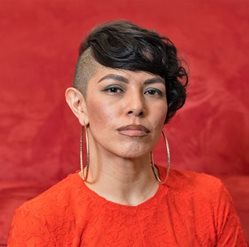Royalty Research Fund
Royalty Research Fund supports UW faculty seeking to establish new research programs
It’s that time of year again! The UW Royalty Research Fund fall deadline (Sept 30, 2019) is almost here and the spring deadline (March 2, 2020) will be here before you know it. This is a good opportunity to celebrate two UW Bothell School of Interdisciplinary Arts & Sciences faculty who were awarded RRFs in the most recent cycle (June). Congratulations to Dr. Naomi Bragin who will study Hip Hop Dance and the Sensory Politics of Movement and Dr. Charles Collins who was funded to complete a measurement study of the white anti-racism praxis scale.
Naomi Bragin
Hip-Hop Dance and the Sensory Politics of Movement uses performance ethnography and oral history to study an under-researched archive of black vernacular dance, forming the foundations of contemporary hip-hop culture. I draw from twenty-five years’ experience as a dancer and cultural activist, committed to the embodied practice of hip-hop as political consciousness. Although hip-hop dance is a global culture spanning neighborhoods, private studios, world competitions, social media, TV and film, there are only three academic monographs devoted to its study. I assert dance is a crucial site of hip-hop knowledge production, foregrounding embodiment and challenging the mind-body divide in Western thought.
I study kinesthesia, the sense of motion, to consider ways movement aesthetics challenge the dominance of sight within Enlightenment epistemology, acting as embodied codes of black liberation struggle. If dances carry performative codes of their specific cultures of emergence, what ethical implications apply to collective coding practices transmitted in the rapid global circuits of information-age cultural production? How do people use dance as an embodied resource for navigating and negotiating relational systems of power and difference? To investigate these questions I use the term kinethics—a theory of movement as an embodied system of sensory relations, produced and exchanged between people and groups, and shaped by differing approaches to rhythm, improvisation and space. Kinethics traces how power and subjectivity structure relationships between dances and practitioners, in shifting spatial contexts and social formations. I give special attention to how sociality is constructed and critiqued through practices of moving in relation.

Charlie Collins
There has been a robust racial justice movement in the U.S. that has pursued power with the goal of promoting wellness and liberating racially and historically oppressed communities. A threat to this movement is the racist attitudes of white folks – even those allied with the racial justice movement. Central to the issue of racism for whites is understanding their own whiteness and the role it plays in racist institutions. Racial justice organizations have adopted a strategy of providing training, educational, and organizing programs to develop stronger anti-racist praxis among white allies. However, the research in community/social psychology to date has been phenomenological in nature and focused on communities of color. Researchers have not developed an anti-racist praxis scale focusing on white allies. Building on preliminary interview research with 15 white anti-racist activists, which found that allies adopt psychological and political strategies in their praxis, this proposal seeks to develop an anti-racist praxis scale and model relationships between praxis and whiteness ideologies (e.g. white fear). By surveying a representative sample of white anti-racist activists, this project seeks to answer the following research questions:

- Is a quantitative anti-racist praxis scale a valid and reliable way to measure the ways in which anti-racists engage in their liberation work?
- If so, are there “stages” of anti-racist praxis development? Is it linear? Is there a relationship between anti-racist praxis stages and experience in the racial justice movement?
- Is there a relationship between anti-racist praxis and whiteness ideologies (e.g. colorblind racism)?
